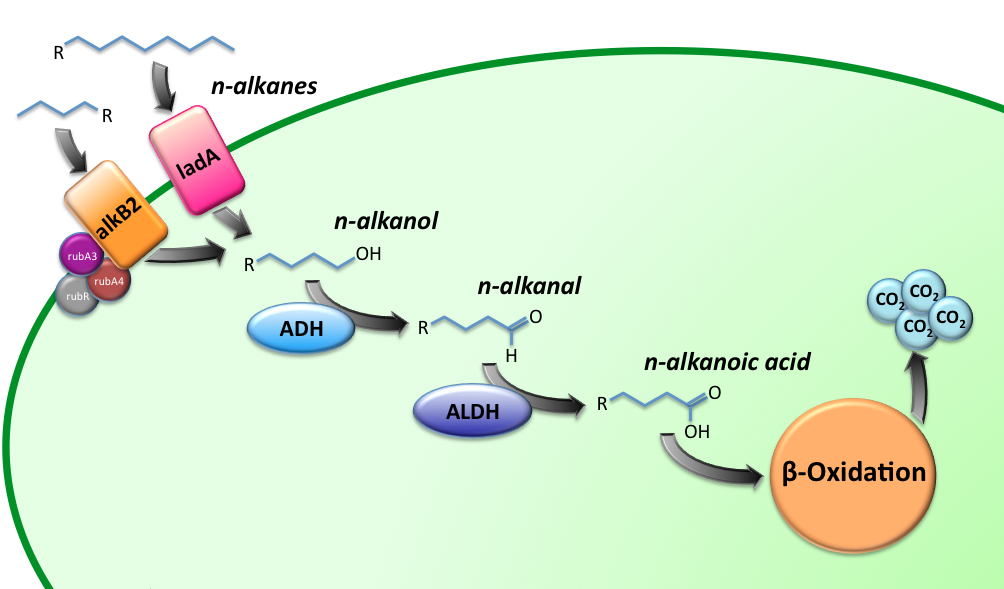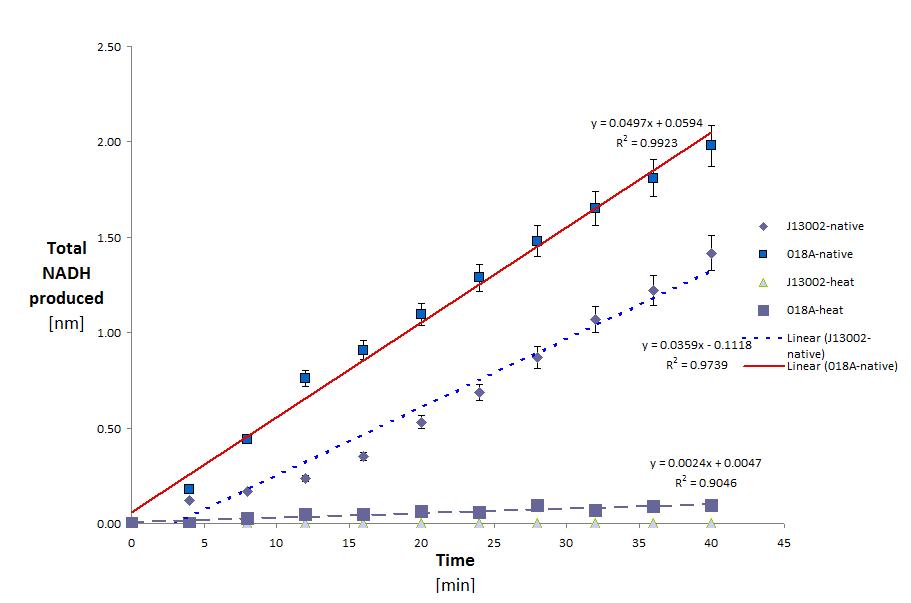Team:TU Delft/Project/alkane-degradation/results
From 2010.igem.org
(Difference between revisions)
Ravandervalk (Talk | contribs) (New page: '''Figure 1''' – Schematic description of the alkane degradation pathway with the corresponding genes. ===Alkb2 Clust...) |
Ravandervalk (Talk | contribs) (→ADH) |
||
| Line 9: | Line 9: | ||
===ADH=== | ===ADH=== | ||
| - | ADH was tested with | + | ADH was tested with Dodecanol (C12) |
This yielded the following results: | This yielded the following results: | ||
| Line 16: | Line 16: | ||
This shows two things. | This shows two things. | ||
| - | That E.Coli is partly able to degrade | + | That E.Coli is partly able to degrade Dodecanol on it's own. And that this activity is greatly increased (38.4%) with the addition of ADH. |
It is also clear that eventhough ADH is from a thermophilic organism it loses most of it's activity after heating. | It is also clear that eventhough ADH is from a thermophilic organism it loses most of it's activity after heating. | ||
(Although this activity could also be attributed to the host organism lacking the proper post translational modifications.) | (Although this activity could also be attributed to the host organism lacking the proper post translational modifications.) | ||
===ALDH=== | ===ALDH=== | ||
Revision as of 15:51, 15 October 2010
Contents |
Alkb2 Cluster
LadA
ADH
ADH was tested with Dodecanol (C12)
This yielded the following results:
This shows two things. That E.Coli is partly able to degrade Dodecanol on it's own. And that this activity is greatly increased (38.4%) with the addition of ADH. It is also clear that eventhough ADH is from a thermophilic organism it loses most of it's activity after heating. (Although this activity could also be attributed to the host organism lacking the proper post translational modifications.)
 "
"

